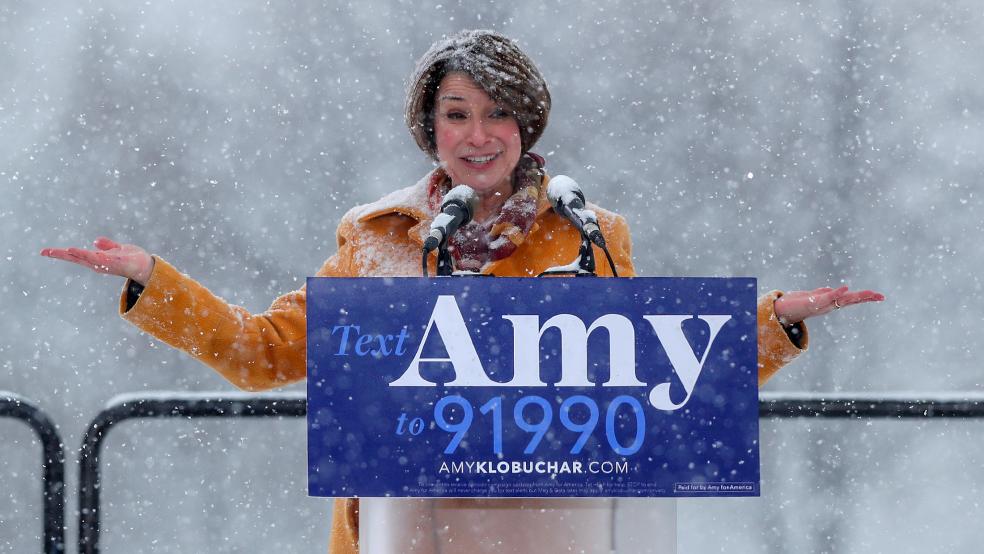Presidential candidate Sen. Amy Klobuchar released an infrastructure plan Thursday that the Minnesota Democrat said would be her top priority should she win the 2020 election.
“Here’s the truth,” Klobuchar said in a tweet. “Our infrastructure is falling apart and we need bold action to fix it. That’s why I’m announcing a trillion-dollar plan to overhaul and build America’s infrastructure.”
Citing the more than 50,000 structurally deficient bridges currently in the U.S., Klobuchar’s press release touted her role in securing financing to rebuild the Interstate 35W bridge in Minneapolis, which collapsed in 2007. In addition to repairing bridges and roads, Klobuchar proposes to rebuild public schools, improve public transit, invest in green energy infrastructure and connect every household to the internet by 2022 while creating “millions of good-paying American jobs.”
Klobuchar also tweaked Republicans for their failure to pass an infrastructure plan over the last two years. “President Trump is asking Congress for $200 billion for infrastructure in his budget proposal that will somehow support an over a trillion-dollar investment, but his plan is a mirage and he leaves the details up to lawmakers,” her press statement said.
Some key details from Klobuchar’s proposal:
- The plan calls for $650 billion in direct federal spending.
- A new, independent federal infrastructure bank would leverage $250 billion to $300 billion in direct loans and loan guarantees to support roughly $400 billion in additional spending.
- Investment would be targeted at seven specific areas: roads, highways, and bridges; airports, seaports and inland waterways; public transit and rail infrastructure; public schools; high-speed internet; clean energy; and water quality.
- Klobuchar would revive Obama-era Build America Bonds, which subsidized infrastructure projects, and authorize new bonds focused on private investment in public infrastructure and green energy.
- Klobuchar proposes “a series of corporate tax reforms” to help pay for the plan, including raising the corporate tax rate to 25 percent, up from 21 percent imposed by the 2017 tax law.
- The nation’s largest banks would face a new financial risk fee to provide additional funds.




